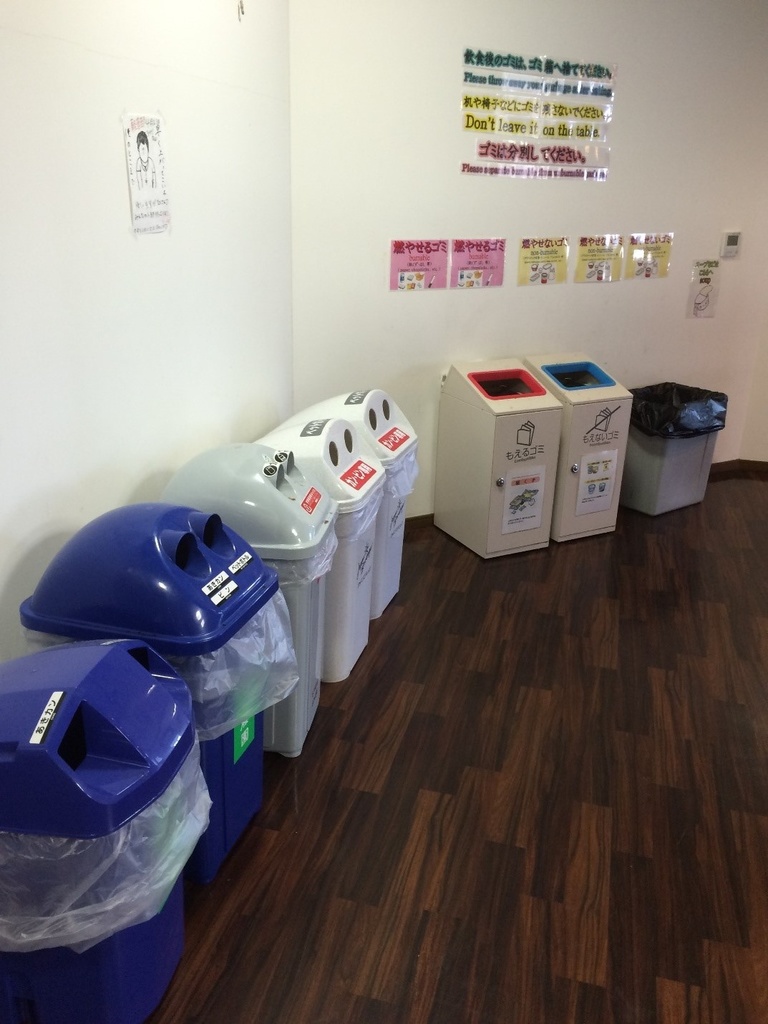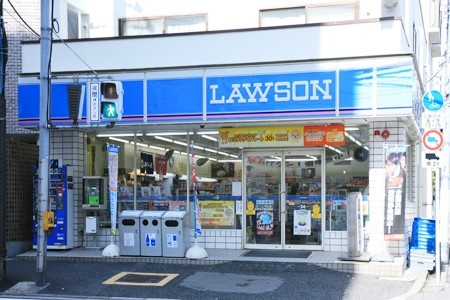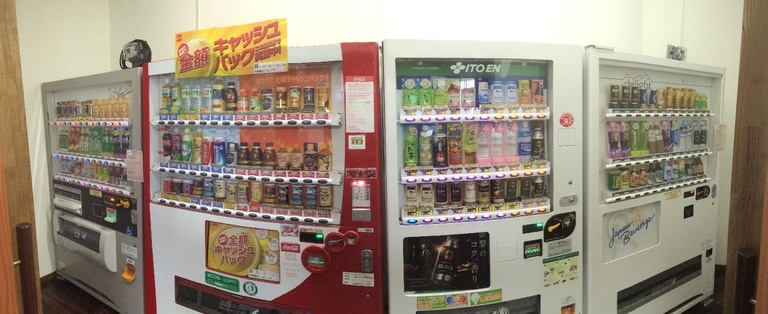By Luke Bader*
Hey Everyone!
Sorry that it’s been a while since I wrote! Time flies fast when you’re both busy and having fun, especially when you’re running on a fourteen hour time difference!
As anyone who has visited a foreign country can tell you, they have usually seen a different way of doing things that make them wonder, ‘Why don’t they do that where I’m from?” Therefore, today I thought it would be fun to look back at the things I’ve noticed here in Japan and list some of the smaller things I think would be great to introduce into American society.

Yeah... we take waste disposal seriously here in Japan.
Litter/Waste Disposal
In the U.S., waste disposal is fairly simple. When in doubt, throw it in the trash. Sure, we have a recycling system, but in all honesty it’s not all that it really should be. Here in Japan, things run a little tighter. In almost any public area where you find a trash can, you will most certainly find at least a second one.
With trash, you will have two options, burnable and non-burnable. Recyclable cans and bottles also have their own special system. At first glance, this seems more like one or two steps up from the U.S. However, what makes Japan much more efficient is how they enforce it. On trash days, most garbage collectors will keep an eye on what they are picking up. If they find that you failed to sort your trash, you may just find yourself a nasty note and having to keep the trash for an extra week or two.
Yet, despite the few number of public trash bins there are (compared to America) the streets here in Nagasaki are remarkably clean! Japanese people are expected and have accepted the responsibility to take their trash with them until they find an appropriate trash bin.
Convenience Stores
In the U.S. (at least where I’m from) small time convenience stores/large gas stations are not that high of quality. Mostly you find stale donuts, a lot of candy, soda and chips, and if there are any hot foods, they’ve usually been on a warming pan for at least a few hours. In Japan, if you happen to find yourself in a Lawson’s or a Family Mart, while you will find candy and soda, you will also probably find yourself with a much better variety of foods such a nice selection of onigiri (rice balls) or hot curry buns.
Fun fact about the onigiri: freshness is important. Every few hours or so, it is the store workers’ job to change them out with fresher ones.

Vending Machines
This is personally my favorite thing on this list. Japanese vending machines blow American ones out of the water! In America, the options are pretty much always the same; soda, candy, sports drinks, and chips. Japanese have the win in this category for a wider variety including coffee, juice (real/non-caffeinated), milk tea, lemon water, green tea, and many more options depending on the kind of machine you come across. Also, for my legal-aged friends back home, you will also come across alcoholic beverage serving machines.
As a cool side-note, many small ramen shops and other food venues have a small vending machine that dispenses tickets that you purchase before sitting down. After purchase, you simply hand it to your server and wait for your meal. It’s pretty handy if you ask me!
Also, in case you are wondering, the prices for things like a can of pop or a bottle of water in the average machine is about 100 yen (less than a dollar).

Vending machines at my school. These things are EVERYWHERE here!!!
Tax
Have you ever gone shopping and always wondered while standing in the checkout line if you have enough cash on hand because you don’t know the tax? When it comes to stores in Japan, when you look at the price tags, there has never (in my experience at least) been a problem figuring out the tax. Why? Because they put the selling price on the label! If a shirt price says it costs 1000 yen, you will pay exactly that. This really begs the fore mentioned question, “Why don’t we do this in America?,” because I have yet to meet an anyone who says, “Yes, I enjoy reading the price of $11.99 and then having to mentally figure out what the total is after tax. Especially when I’m in a rush.”
Late Slips
As it is in America, being late for school or for work is something to be avoided, unless you wish to have a bad mark on your attendance record. However, Japan has something I believe gives it a leg up on America. In America, if your train or bus to work has a delay, you pretty much just have to roll with the punch and apologize to your boss that you were late and, depending on if he/she is in a good mood, they might overlook it. In Japan, they have a nifty little system where if a bus or train gets delayed, they will often hand out little white ‘late slips’ that you can hand into your work or school and avoid getting penalized. As a person who has been to work late at least once due to bad traffic, I definitely think cities should look into doing this with their bus and subway systems.
Now, a question for all my fellow study abroad students (current or past) who happen to be reading: What kinds of things from the countries you visited do you think America should consider? Is there anything in America that you think other countries could benefit from by looking to America? Let me know what you think!
Thanks for reading, everyone! まったね!
Quick Tips:
While you’re in Japan, be aware of how much cash you need for the day. Unlike in America, many ATMs stop working after a certain time. This may be a problem for people who like to have a late night with their friends but forgot to get cash earlier.
Always carry a map of your current city’s bus and street car routes. As anyone who has been to Japan before can tell you, taxis here are expensive! Also, as a side note, one should be aware that unlike in America, trains and buses here do not run all night. Most stop running around 11 PM. So keep an eye on your time! If you find yourself past that time and on the other side of the city, you may have to resort to a very expensive cab ride!
On a matter of personal hygiene, it is usually best to carry some tissues or a pocket cloth. Many restrooms in Japan (with exceptions) do not stock paper towels or even electric hand dryers.
*Luke Bader is a senior majoring in international studies with a minor in Japanese and a certificate in writing at the University of Iowa. This semester, the Jesup, IA native is studying abroad on the USAC Nagasaki Program in Japan.